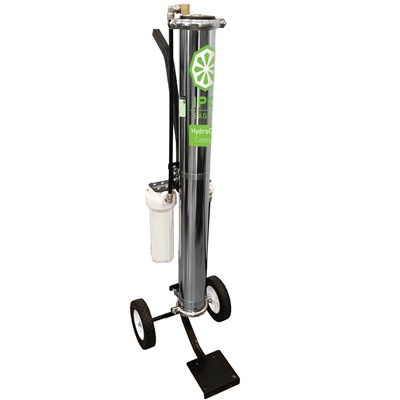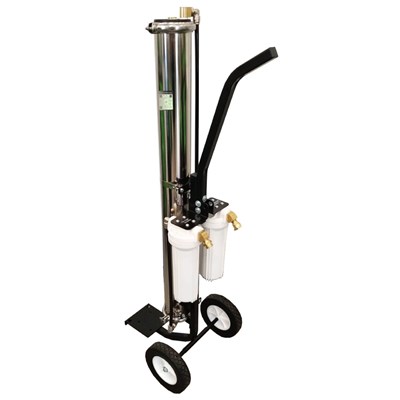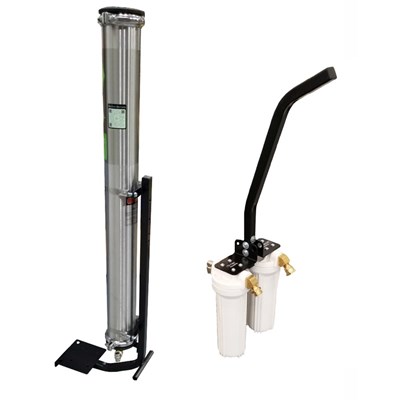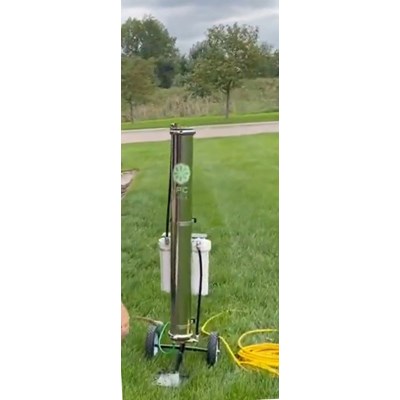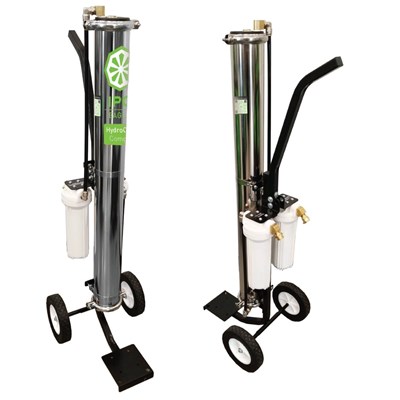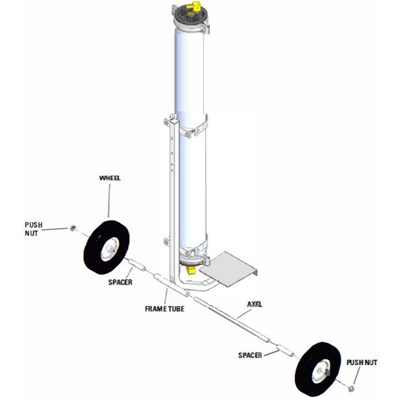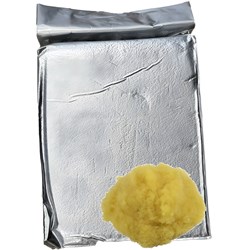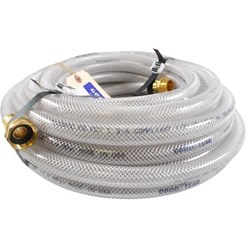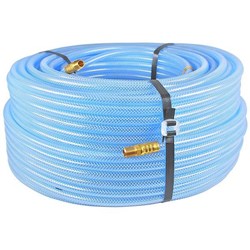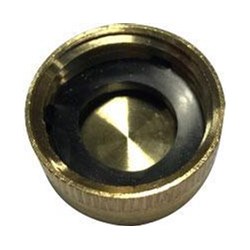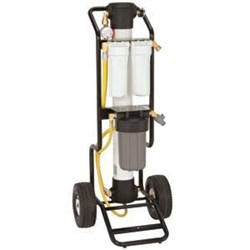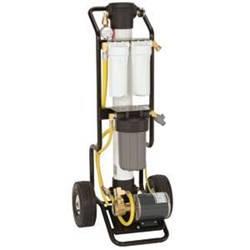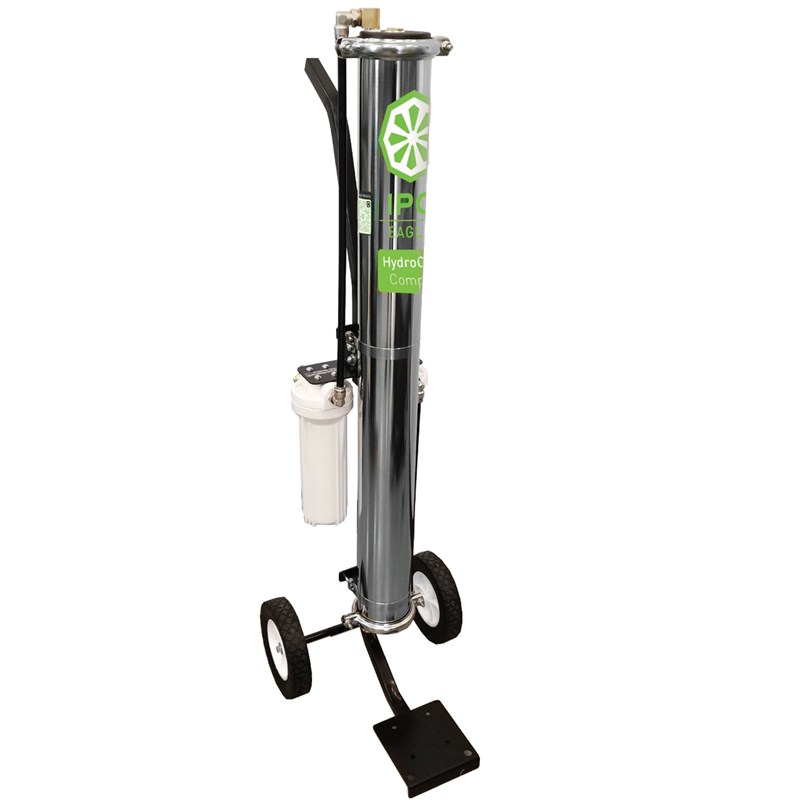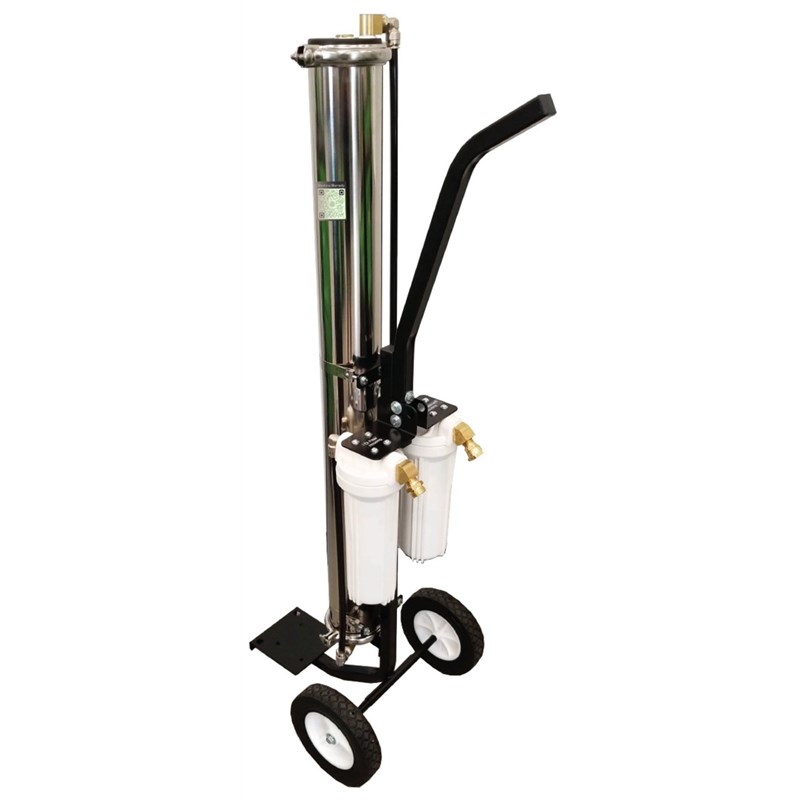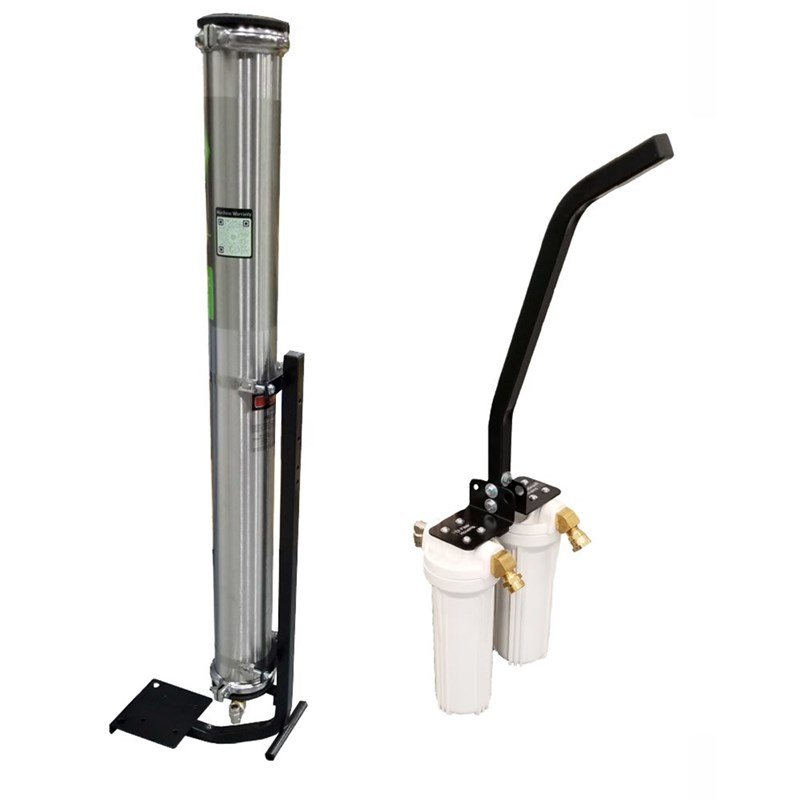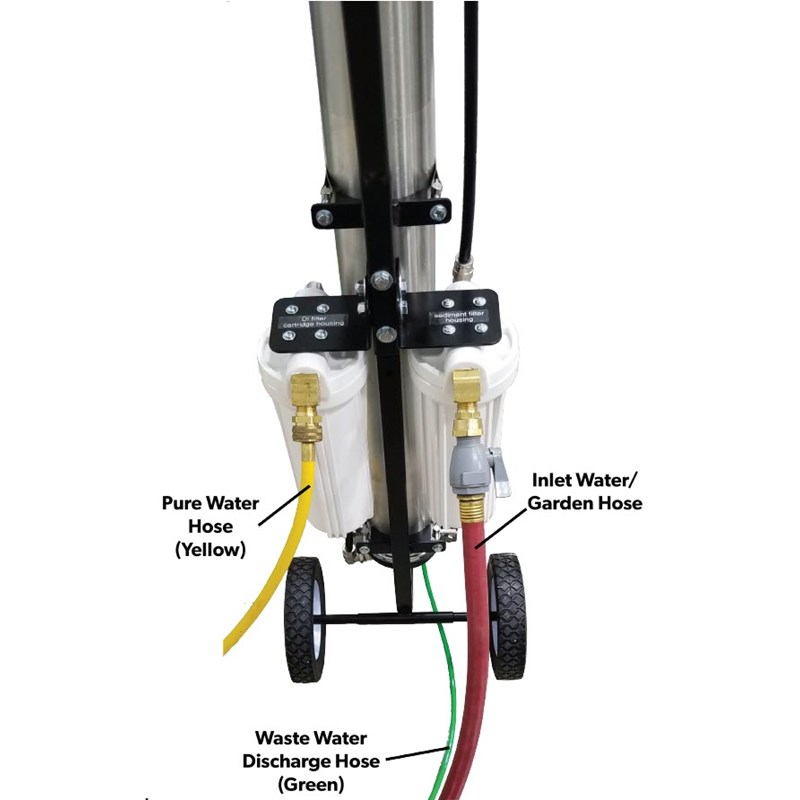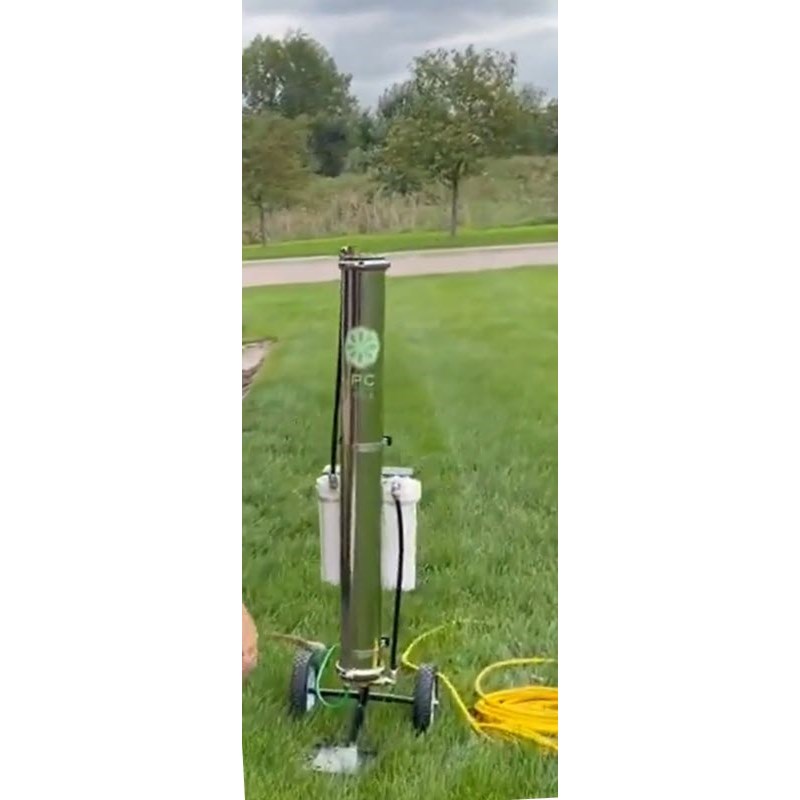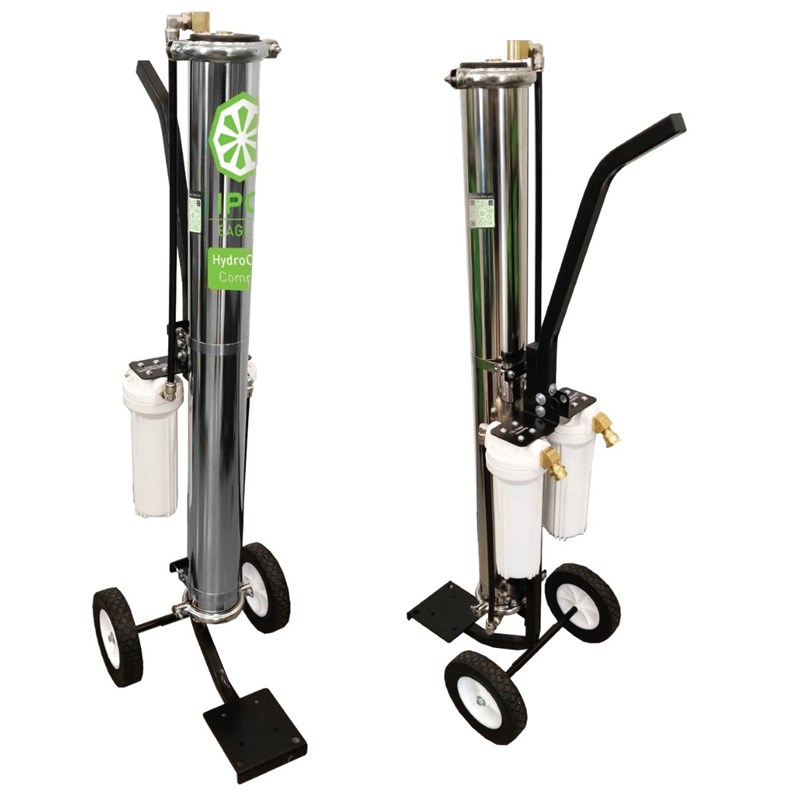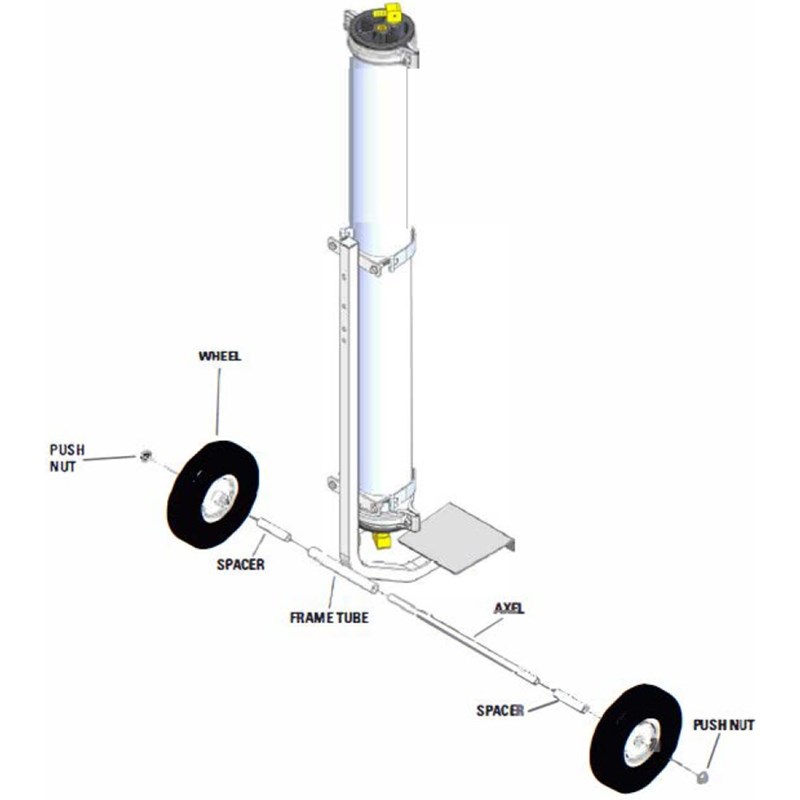HydroCart Compact Eagle
Quick Overview
- The Hydrocart family of water purification systems are recognized worldwide for thier design and quality
- The Hydrocart Compact is a great purification system for a single operator with a Water Fed pole to about 4 stories on tap water pressure
- The system creates 0 tds Puer Water for all of your cleaning needs, easy to use this system offers the operator one of the quickest setup times in the industry
- Industry Standard replacement cartridges and refillable resing capability offers a low operating cost
- The Hydrocart Compact includes 50 feet of supply line to your waterfed pole.
Show More
HydroCart Compact IPC Eagle
Consisting of a Carbon/Sediment Filter a 40in RO Membrane and a DI Resing Filte for polishing the cart offers a single operator an easy to use and setup pure water system
Carbon Sediment Filter
Change every 5000 gallons of feed water run through the machine, or roughly 30 hours. It is recommended to replace the carbon filter when the DI resin cartridge is replaced to assure protection of the RO membrane.
RO Membrane
The 40 inch long by 4in diameter RO Membrane is the workhorse of the system eliminating ~95% of the calcium, magnesium and other contaminants in the water to send this cleaner water on to the DI Resin filter for final polishing.
The RO Membrane diverts the dirter water out a bypass hose, direct this water into the foliage or planer boxes, do not allow the bypass to run down the gutter.
DI Resin Filter
DI Resin offers the final polishing where whatever contaminants are left in the water stream after RO Membrane processing are polished off by the resin down to Zero TDS.
Measure the TDS output after you start the system up each time, (at least once a day). When you notice the TDS measurement rises to 10 or so on the meter it is time to replace the DI Resin.
The DI Resin replacement can be done by inserting a fresh cartridge, or emptying the cartridge and discarding the resin in the trash then refilling the cartridge from a bulk resin supply. Reseal the Bulk DI Resin Bag as the resin will go stale (like bread does) if exposed to the air.
The system comes with a TDS meter to perform this test and 50 feet of connection hose to the cleaning pole and brush.
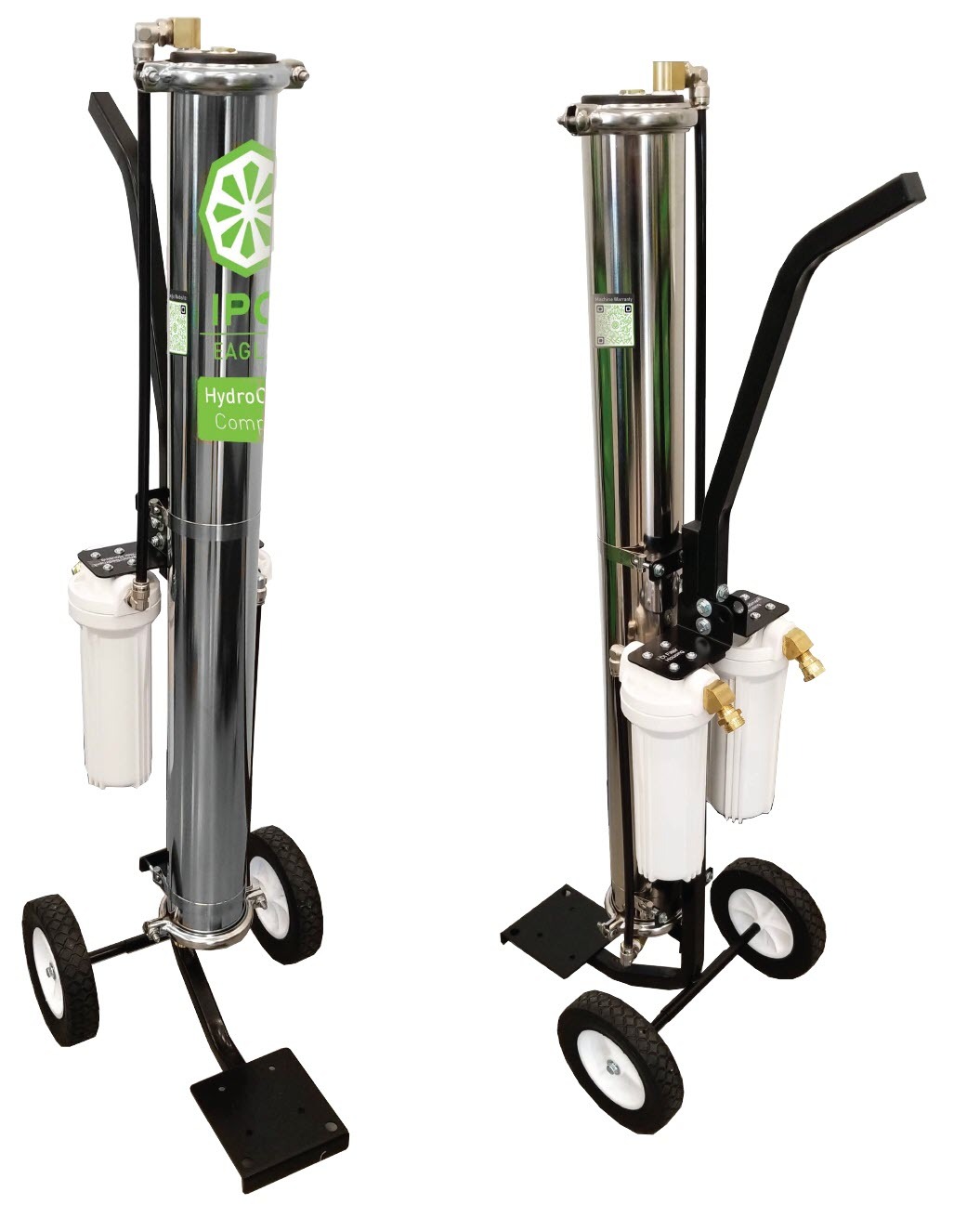
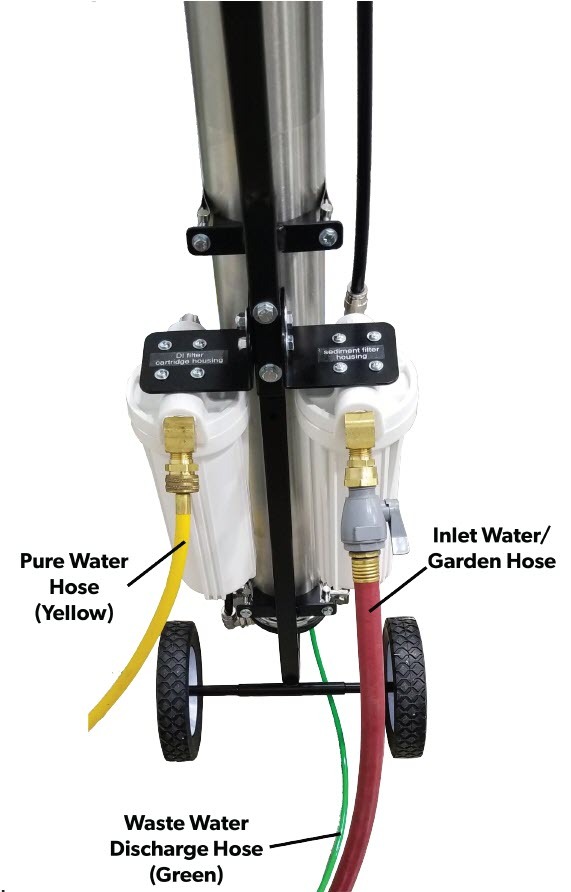
Some Assembly Required
This ships in a box for less money than an assembled unit would cost and requires some easy assembly when received.
Please refer to the assembly video, above in the video section for assembly instructions.
A quick overview follows:
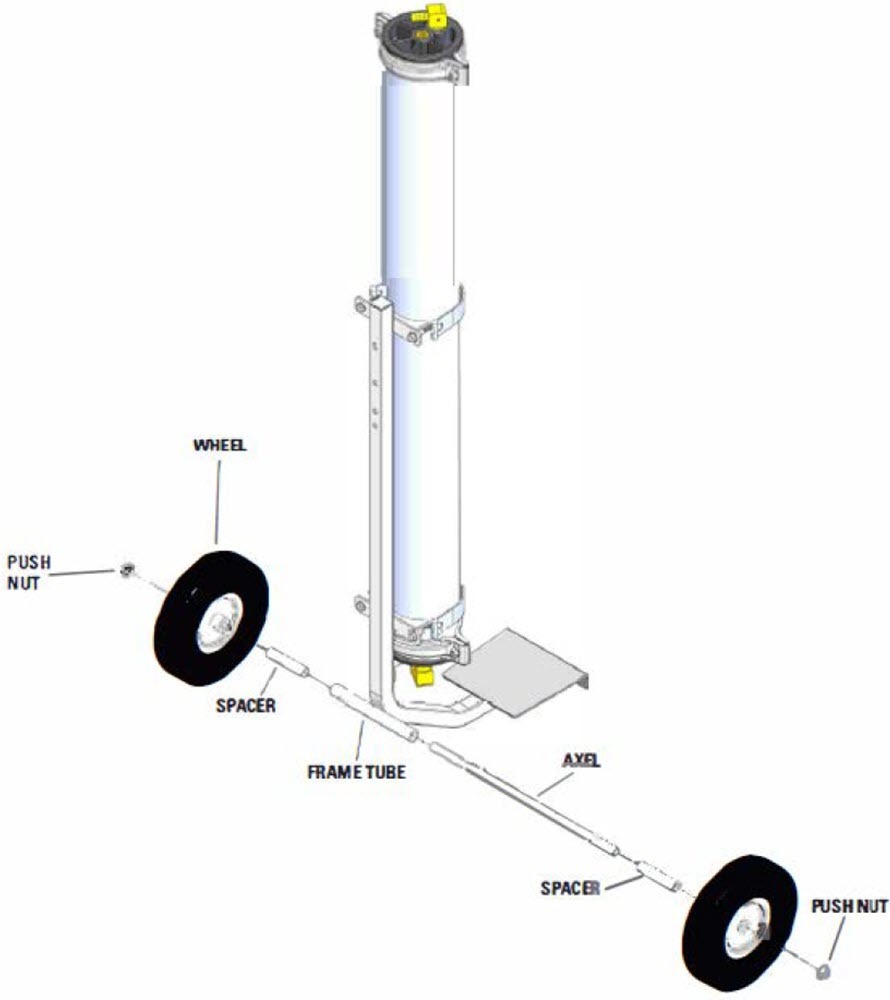
Wheel and Axle installation
Use a rubber hammer to pound on the Push Nuts onto the axle as described in the video
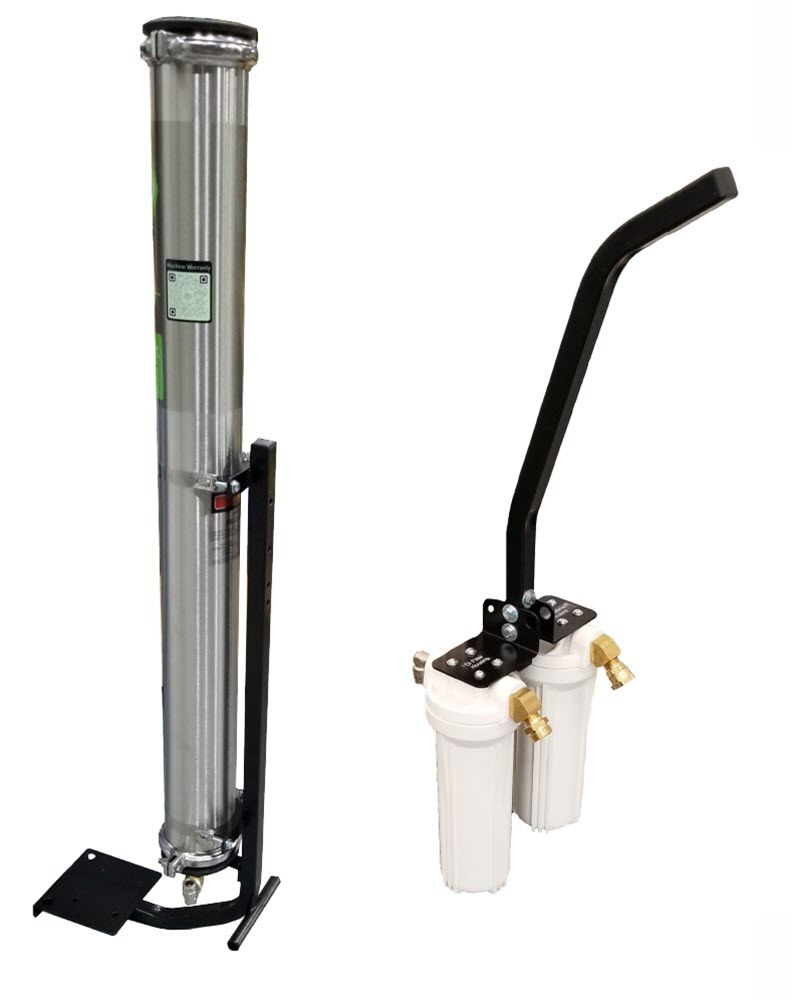
Attach the Filter and Handle components
Using a set of 1/2in wrenches and provided hardware
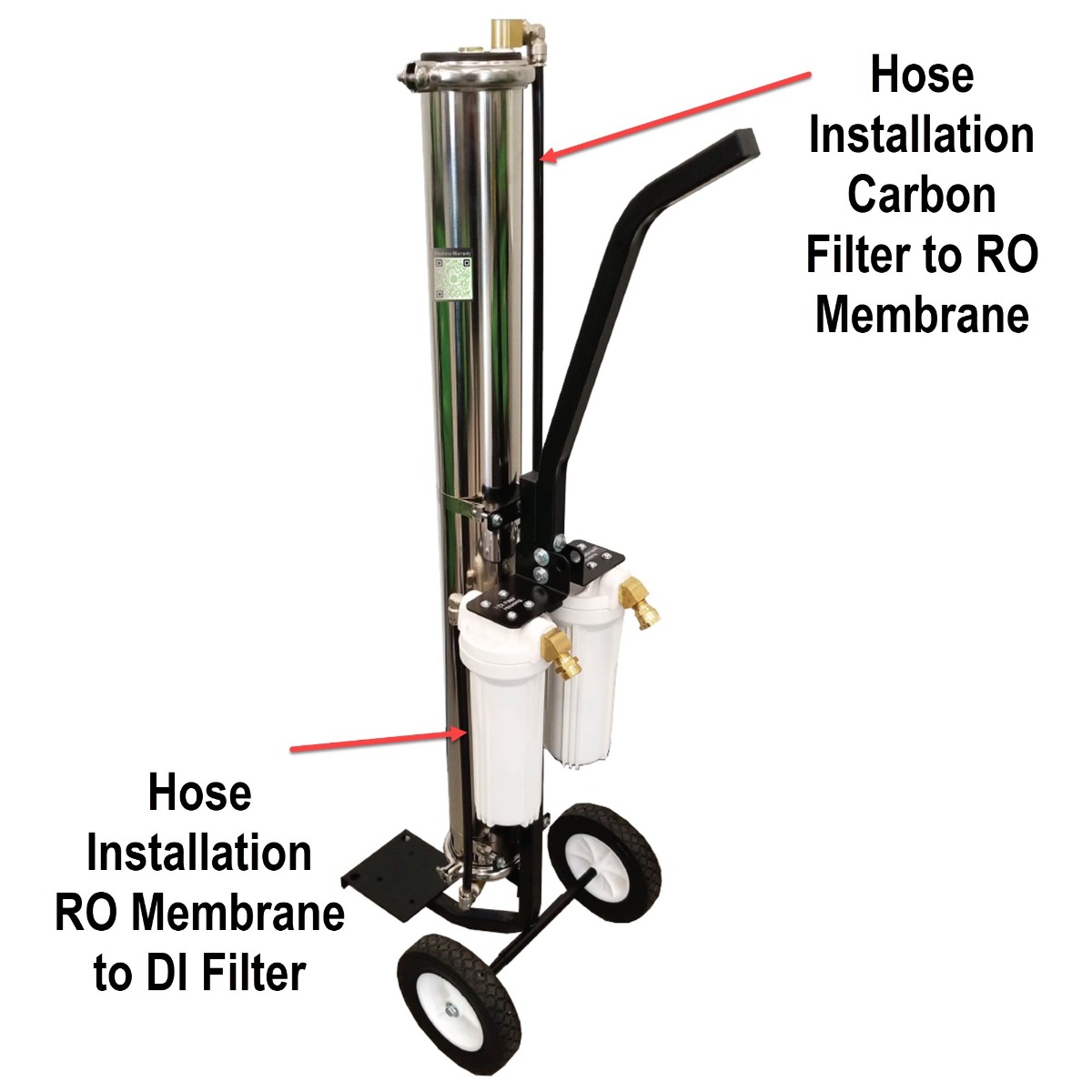
Insert Supply tubes into fittings
Use your hands to insert the tubing nto the appropriate fittings, smaller tube on DI Filter connections, longer tube on Carbon to RO Membrane
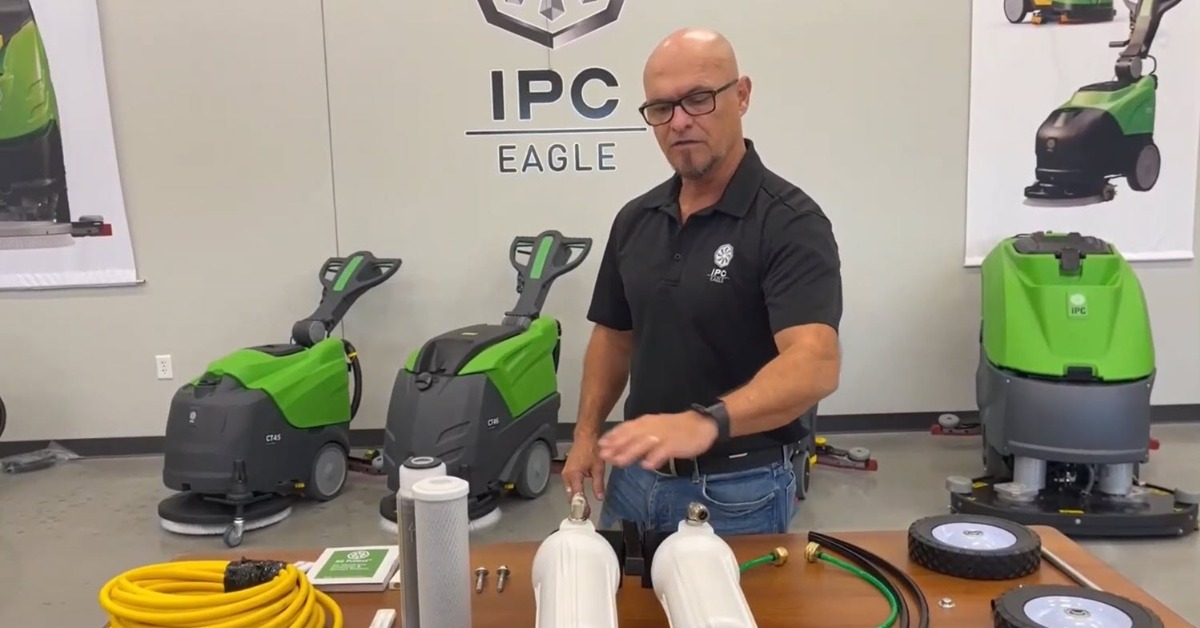
Install the Carbon Filter and DI Resin Cartridge into thier housings
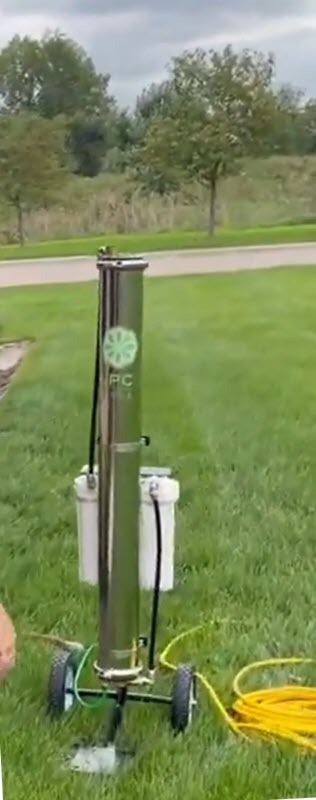
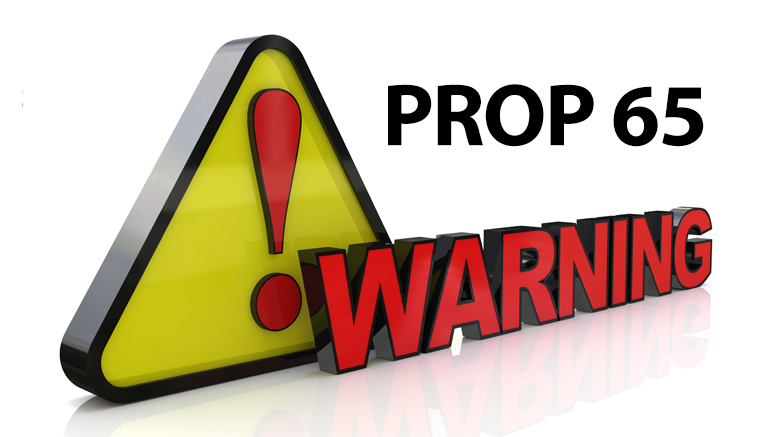
Proposition 65 requires businesses to provide warnings to Californians about significant exposures to chemicals that cause cancer, birth defects or other reproductive harm. These chemicals can be in the products that Californians purchase, in their homes or workplaces, or that are released into the environment. By requiring that this information be provided, Proposition 65 enables Californians to make informed decisions about their exposures to these chemicals. Proposition 65 also prohibits California businesses from knowingly discharging significant amounts of listed chemicals into sources of drinking water. Proposition 65 requires California to publish a list of chemicals known to cause cancer, birth defects or other reproductive harm. This list, which must be updated at least once a year, has grown to include approximately 900 chemicals since it was first published in 1987. Proposition 65 became law in November 1986, when California voters approved it by a 63-37 percent margin. The official name of Proposition 65 is the Safe Drinking Water and Toxic Enforcement Act of 1986.
The list of chemicals contains a wide range of naturally occurring and synthetic chemicals that include additives or ingredients in pesticides, common household products, food, drugs, dyes, or solvents. Listed chemicals may also be used in manufacturing and construction, or they may be byproducts of chemical processes, such as motor vehicle exhaust. For more information visit www.p65warnings.ca.gov/


